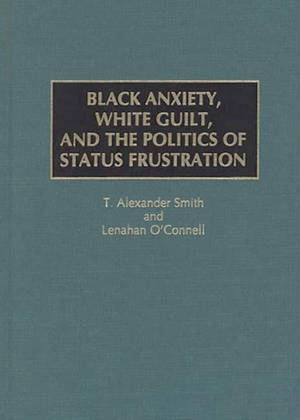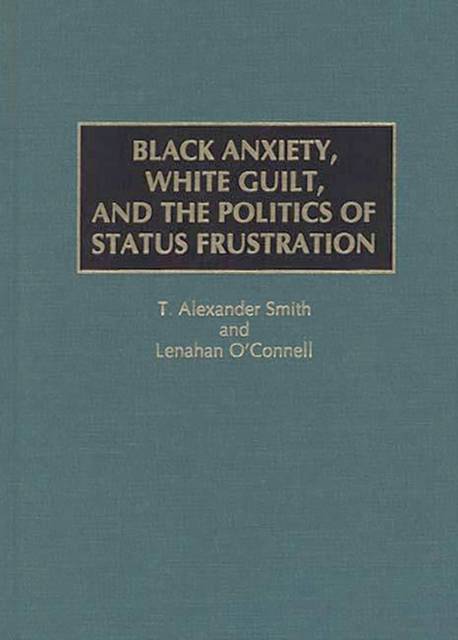
- Retrait gratuit dans votre magasin Club
- 7.000.000 titres dans notre catalogue
- Payer en toute sécurité
- Toujours un magasin près de chez vous
- Retrait gratuit dans votre magasin Club
- 7.000.000 titres dans notre catalogue
- Payer en toute sécurité
- Toujours un magasin près de chez vous
Black Anxiety, White Guilt, and the Politics of Status Frustration
T Alexander Smith, Lenahan O'Connell, Alexander Captain SmithDescription
In this wide-ranging survey of contemporary race relations in the United States, Smith and O'Connell provide a thorough re-examination of our situation. They begin by assessing the part played by status struggles and anxieties in intergroup relations. For the black middle classes, they assert, the benefits of social-economic advancement and rising expectations combine with status frustration and anxiety to create a sense of estrangement from whites and what are typically referred to as white institutions. They then look at the role social scientists have played in both analyzing and contributing to race problems. In their examination of racial stereotypes, Smith and O'Connell show how whites typically construct stereotypes in such a way that they can respond to blacks as concrete individuals, rather than as members of an abstract, all-embracing racial category. In their examination of the Quota Revolution they demonstrate that affirmative action predictably fails to raise average black income; nor does it promote racial respect and cooperation. Finally, they assert that if status anxiety plays an increasingly important role in intergroup struggles as group power relations are increasingly characterized by social and political parity, then there are rather strict limits to what social reform can accomplish.
Racism, Smith and O'Connell contend, has less to do with current social conditions in black America than is usually supposed. More indirect forces such as technological innovation, global interdependence, immigration, misguided welfare policies, and certain kinds of cultural values post far more serious threats to the incomes and employment opportunities of less affluent black Americans than do the remaining traces of white racism. This thought-provoking book is must-reading for scholars and researchers in the fields of public policy and contemporary race relations.Spécifications
Parties prenantes
- Auteur(s) :
- Editeur:
Contenu
- Nombre de pages :
- 216
- Langue:
- Anglais
- Collection :
Caractéristiques
- EAN:
- 9780275960544
- Date de parution :
- 25-11-97
- Format:
- Livre relié
- Format numérique:
- Genaaid
- Dimensions :
- 163 mm x 241 mm
- Poids :
- 471 g







